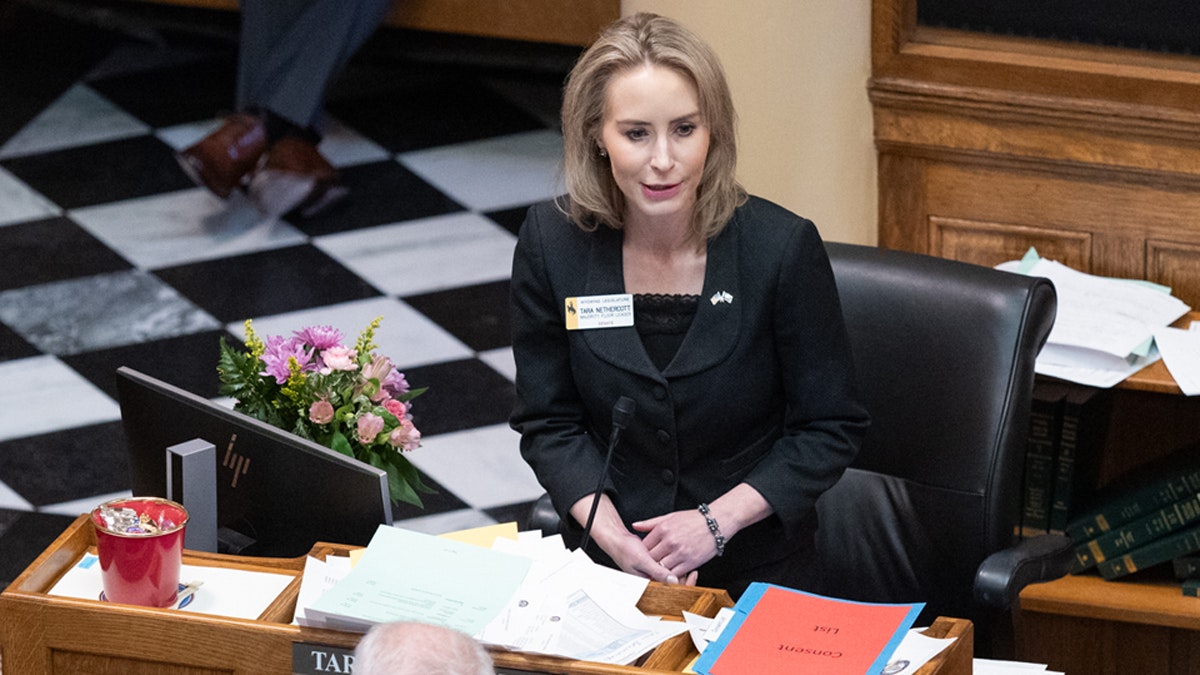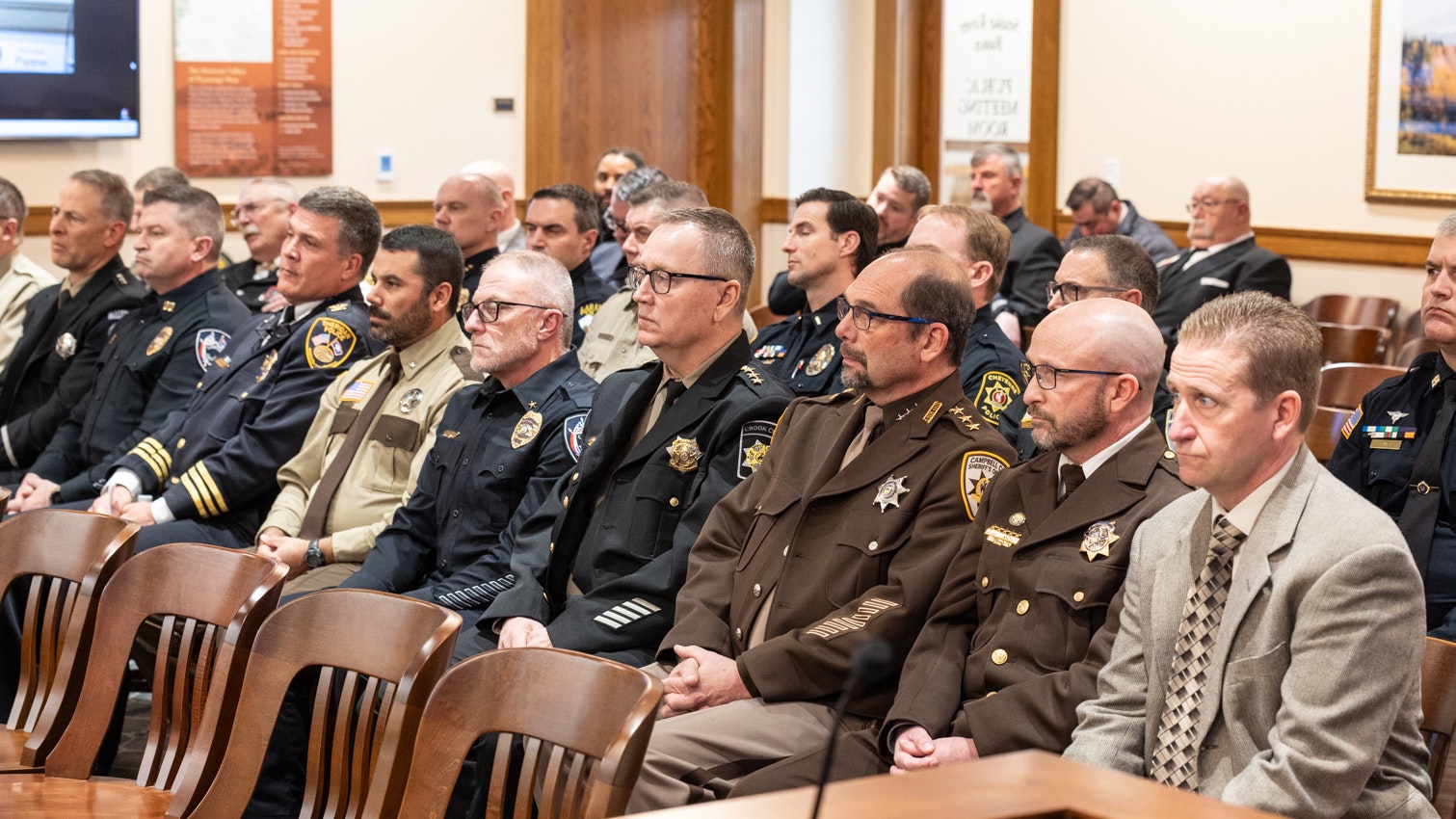WASHINGTON, D.C. — If Republicans want to fine-tune their bill to claw back $9.4 billion in federal payouts, including defunding PBS and NPR, they're running out of time.
The U.S. House has a legal deadline of Friday at 11:59 p.m. Eastern time to vote on the proposed $1.1 billion in cuts to public television and radio.
As of the time this story was published Thursday night, the House was in recess and hadn’t voted on the cuts.
The cuts are part of a rescissions package — a clawback of funds previously allocated by Congress. By law, these unusual measures must be passed by both chambers of Congress no later than 45 days after formally requested by the president.
The House passed the legislation last month and the Senate did the same in the early-morning hours Thursday — but the Senate made changes, sending it back for a House revote.
If the House does not agree to the Senate changes, the whole process would need to start over with a request by President Donald Trump.
Or, lawmakers could write their own legislation.
But normal legislation is subject to a 60-vote threshold in the Senate, where the GOP holds 53 seats and barely mustered the simple majority needed Thursday under the rescissions rules.
Allegations Of Bias
Though the Senate changed the rescissions package slightly, the measure would still cut $1.1 billion for the Corporation for Public Broadcasting (CPB) which, along with private donations, funds public television and radio. The cut would zero out two years of funding.
The package also includes a cut of $8.3 billion in foreign aid.
Regarding the CPB part of the package, Republicans, including Wyoming’s congressional delegation, have complained of left-leaning national news operations such as the “PBS NewsHour” and National Public Radio.
But more than 70% of CPB’s money goes to the nation’s 1,500 local public radio and TV stations, according to the CPB’s website. A great deal of local programming and some national shows as well have nothing to do with politics.
Emergency Alerts
Congress created the CPB in 1967. In addition to regular programming, Democrats say it offers life-saving emergency alerts, though Republicans point out the Federal Emergency Management Agency has an alert system unaffected by CPB cuts.
The Senate’s vote Thursday was 51-48 with Republican U.S. Sens. Susan Collins of Maine and Lisa Murkowski of Alaska joining Democrats.
U.S. Sen. Tina Smith, D-Minnesota, did not vote on account of a hospitalization. No Democrats voted in favor of the bill.
The middle-of-the-night final vote followed preliminary votes of 50-50 that had to be broken by Vice President JD Vance.
Wyoming PBS
Wyoming PBS receives a rough annual average of $1.4 million — about a third of its operating budget, General Manager Joanna Kail told Cowboy State Daily on Wednesday.
Losing that money would force significant restructuring within the outlet and other entities that receive that money as dues from stations, she said.
“Of course, it would mean some restructuring and new strategies with Wyoming PBS, but we feel strongly we will weather this storm, and the viewers, members and supporters of Wyoming storytelling will help us continue this vital mission for our state,” said Kail, adding that Wyoming PBS is already discussing other revenue-generating opportunities.
And yet, speaking of national public media outlets, Kail indicated that lawmakers’ claims of bias aren’t entirely off the mark.
“The national entities of PBS could have listened and acted with more humility (toward concerned consumers) for the past several years,” said Kail. “There were things that could have been put in motion much earlier on that could potentially have avoided this culmination.”
Wyoming Public Media
Wyoming Public Media (WPM), which includes public radio, draws about $400,000 annually in direct funding from the CPB, but receives about another $400,000 in services such as negotiating music rights, streaming rights and interconnection funding, WPM General Manager Christina Kuzmych told Cowboy State Daily in a Wednesday email.
The claim of left-wing bias is “understandable,” she said, yet there are several issues at play, such as varying interpretations across people groups, investigative journalists’ hunt for the “smoking gun” in stories they cover, and the “sheer volume of stories covered by news organizations like NPR and WPM.”
Mistakes are bound to surface in so many stories, and both outlets make a point of correcting those, she said.
“At times, though, a listener’s perception of bias is rooted in the fact that they don’t agree with the story,” wrote Kuzmych. “This is a human factor, and understandable.”
She pointed to WPM’s local and regional news, cultural programming and community service information as vital offerings for Wyoming.
Wyoming’s Calvert Chairs CPB
Ruby Calvert, board chairperson for the Corporation for Public Broadcasting and former general manager of Wyoming Public Broadcasting Service (PBS), countered claims like these in a Cowboy State Daily guest column.
“Unlike commercial outlets, public media is held to the highest standards of transparency, accountability and responsiveness precisely because it is responsible to the American taxpayer,” Calvert wrote, adding that “civic trust is fraying, (and) public media provides Americans with reliable, local reporting and information that empowers citizens to participate in decisions that affect their lives.”
Partisan, Bipartisan Legislation
Congressional Republicans have been using their thin House and Senate majorities with great effect this Congress to get around the 60-vote Senate rule for most legislation and instead pass measures on party-line, simple-majority votes.
They have used the Congressional Review Act to throw out environmental and banking rules. They used the budget reconciliation process to move the One Big Beautiful Bill, and now a rescissions package, with perhaps more to follow.
Some Republican-led measures have gone through the regular process requiring bipartisan support, however.
They include the Laken Riley Act, an immigration crackdown measure; the HALT Fentanyl Act, to stem the flow of fentanyl into the U.S.; and the GENIUS Act, a cryptocurrency bill largely drafted by U.S. Sen. Cynthia Lummis, R-Wyoming.
The GENIUS Act cleared the House on Thursday after passing the Senate in June.
The rescissions package is based on findings of the Department of Government Efficiency (DOGE) when it was headed by tech billionaire Elon Musk, looking for waste, fraud and abuse across the whole government.
Sean Barry can be reached at sean@cowboystatedaily.com and Clair McFarland can be reached at clair@cowboystatedaily.com.





